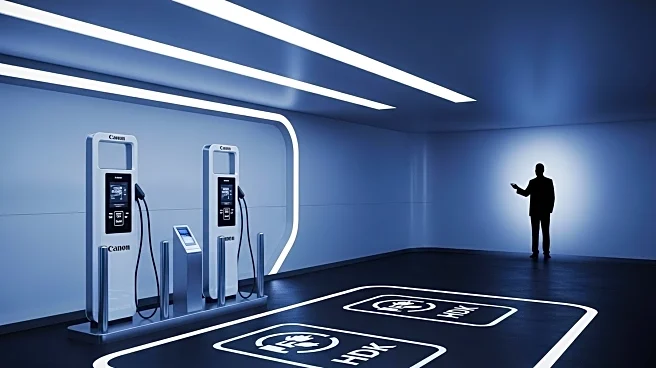What's Happening?
Ford Motor Co. CEO Jim Farley addressed the future of electric vehicles (EVs) and workforce issues at the Ford Pro Accelerate summit in Detroit. With the expiration of the federal tax credit for EV purchases, Farley anticipates a decline in EV sales but sees potential in hybrid vehicles. He emphasized the need for Ford to adapt by focusing on hybrids and other electrification options. Farley also highlighted the importance of skilled trades in the automotive industry and called for increased vocational training. The summit, attended by industry leaders and government officials, aimed to explore ways to enhance productivity in essential sectors.
Why It's Important?
The expiration of the federal tax credit for EVs could significantly impact the automotive market, affecting consumer demand and sales strategies. Ford's shift towards hybrids reflects a strategic adaptation to changing market conditions and consumer preferences. The emphasis on skilled trades underscores the ongoing challenges in workforce development and the need for investment in vocational training. These developments have broader implications for the U.S. automotive industry, influencing manufacturing practices, employment trends, and economic growth. Ford's approach may serve as a model for other companies navigating similar challenges.
What's Next?
Ford plans to offer competitive lease payments to ease the transition away from federal incentives. The company will continue to focus on developing hybrid and electrification technologies, requiring collaboration with government and community leaders to support workforce training. The outcome of these efforts could shape Ford's market position and influence industry standards. Additionally, Ford's ongoing discussions with the Trump administration regarding tariffs and environmental regulations may impact its strategic direction and financial performance.










